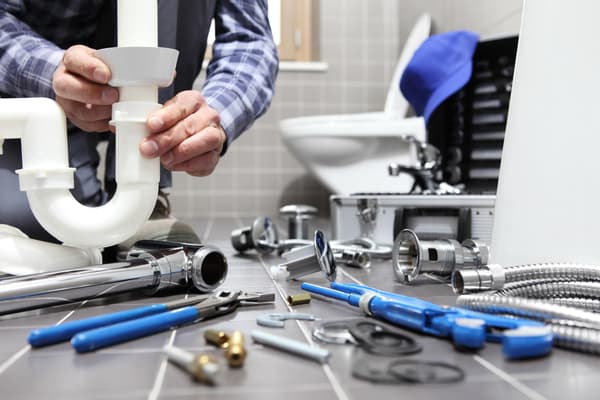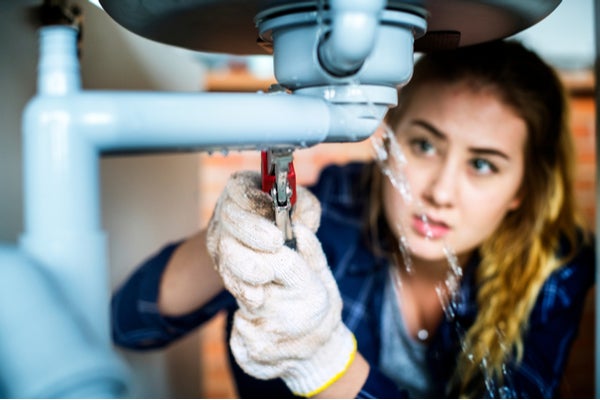Six Factors Behind Your Damage Of The Plumbing
Six Factors Behind Your Damage Of The Plumbing
Blog Article
How do you actually feel with regards to Leak Detection and Repair Without Destroying Your Home?

The trick to long lasting appliances, unsurprisingly, is proper maintenance. There's no set guideline that can assure your plumbing appliances a lengthy wear, yet you can prevent unnecessary damages as well as repair work by avoiding poor plumbing habits.
You must quit doing these 6 points else you'll keep calling your plumber over for minor faults.
Purging whatever
Yes, your toilet drainpipe causes the sewage systems, but that doesn't suggest you ought to dispose just anything down the tubes. Many 'flushable' materials are actually terrific obstruction beginners, for instance dental floss. Asides maintaining noticeable non-flushable materials like wires as well as plastics out of your commode, you must also prevent flushing cotton buds, menstrual products, wipes, daipers and prophylactics down the commode drain.
DIYing whatever
With plumbing, a stitch in time actually does conserve 9. You can prevent a fullblown plumbing emergency by calling your plumber at the correct time.
You may have found out a couple of plumbing hacks from your papa, however you should certainly understand where to draw a line and also call a specialist. For instance, you might be able to repair a clog yourself, however you should not attempt to transform a pipe. You might mismatch pipes or overtighten a bolt, triggering even more injury as well as damage than you assumed. Calling a plumber is a safe and cost effective decision.
Making use of too much drain cleaner
Utilizing a drain cleaner more than one or two times a month is an indication that something serious is going on within your pipes. Now, as opposed to dealing with the main issue, you opt for a quick fix; a carbonated drainpipe cleaner. Rightfully, a drain cleaner will look after the clog, however at what price?
The chemicals in a drain cleanser can speed up the rust of your pipes. Include that to whatever underlying problem is creating the blockage as well as you may need to a major trouble on your hands.
If you experience a lot of clogs, call your emergency plumber as opposed to using a drainpipe cleaner.
Putting oil in the sink
We understand properly dealing with grease after a hearty meal is a pain. Yet just pouring it down the tubes can do long-term harm to your pipes. "The fat as well as oil can block your drainpipe badly adequate to require you to call a plumber," discusses Dawson. "Plumbing works best when it's well looked after-- not abused with grease."
Not transforming your dishwashing machine pipes
One easy method to make sure that you utilize your dishwashing machine for many years is to change the tube at least when in five years. This likewise requests washing equipment hose pipes.
With time, food bits, soap as well as oil can develop blockages within your pipes. Changing them in a timely manner will certainly stop any type of presure build up that can harm the inner functions of your dish washer or cleaning equipment.
An enhanced steel intertwined tube does a great work of prolonging your machine's usage time.
No winter preventative measures
Extreme weather are bad for your pipelines, particularly if they're constructed from steel. You should shield your subjected pipelines, as well as your water tank, even if you have a hot water heater. You need to likewise turn off your garden pipe shutoff and any other outside water networks. These networks are electrical outlets for cold; you pipelines can start to freeze from outdoors if you do not.
How Hard Water Damages Your Plumbing and Appliances
Hard water is no stranger to most households across America. This silent invader affects 85% of homes in the United States every day, wreaking havoc on pipes, plumbing fixtures, and water-using appliances.
Should you become a victim of hard water, you must understand exactly what it is and how it affects your plumbing and appliances. This will help you determine the correct measures to put in place to fix or prevent any problems that may arise.
First off, what exactly is “hard” water?
In short, “hard water” is used to describe water that contains relatively high amounts of dissolved minerals, primarily calcium and magnesium, and a host of trace metals. When rainwater falls from the sky (usually in a pure form), it absorbs the hardness minerals from rocks and soil, which changes it from soft to hard water.
What about my plumbing and appliances?
Mineral deposits from hard water can cause buildup on tubs, shower, sinks, faucets. But that’s only a small scratch of the surface. Those minerals can gradually build up inside pipes, fixtures, water heaters, washing machines, and dishwashers. Once they accumulate in those areas, they can clog pipes and create major problems throughout your plumbing system, from reduced water flow to increased pressure on pipes and fixtures.
This limescale buildup might affect some appliances, causing them to operate less efficiently and wear down faster. And the result? Higher energy bills, more (costly) plumbing replacements and repairs, and damaged appliances.
Keep in mind that certain types of plumbing are more susceptible to clogging than others. Copper, PVC, and PEX pipes are more resistant to hard water buildup and corrosion, but they can still get clogged or completely blocked by scale deposits.
How do I know if my water is hard?
White limescale buildup on plumbing fixtures (or any of the other signs mentioned above) is usually a good sign that your water is hard. If you suspect that you have hard water, you can simply shake up a small amount of dish soap and water in a closed container. If the mixture doesn’t create a lot of suds, you probably have hard water.
The most precise method, however, is to test your water with a DIY test kit (sold online or at local home centers or hardware stores) or send a water sample from your tap to a local lab to be tested. Be sure that you understand the nature of the test, the water condition being measured, and the significance of the test results.
Another way to obtain an estimate of water hardness is to check your annual water quality report to see if your water provider has reported any instance(s) of water hardness in your water supply.
https://www.springwellwater.com/how-hard-water-damages-your-plumbing-and-appliances/

I have been very taken with Leak Detection and Repair Without Destroying Your Home and I'm hoping you liked the entire blog entry. If you liked our blog posting if you please do not forget to share it. We love reading our article about Leak Detection and Repair Without Destroying Your Home.
Estimate Free Report this page